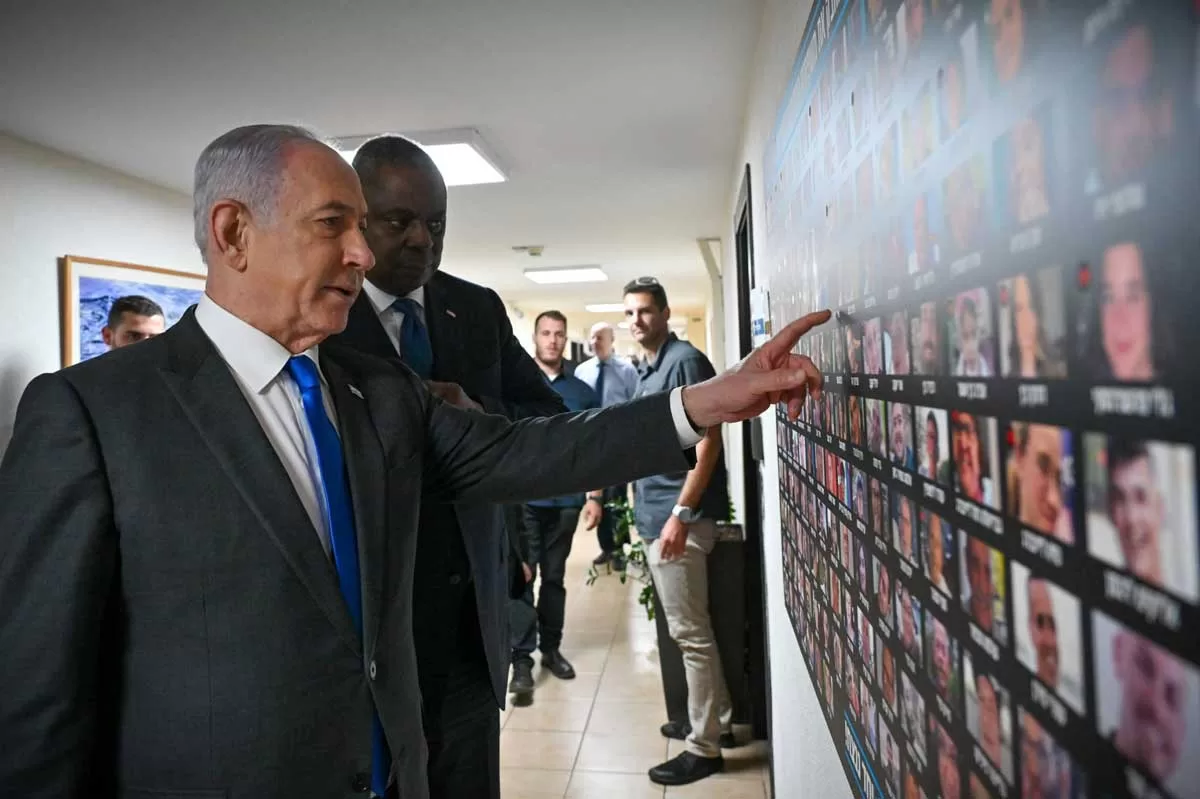Near the Tel Aviv Museum of Art, a long-term installation has been set up at a location now known as “Hostages Square” (which, incidentally, I had the chance to visit earlier this month). The installation includes vendors selling yellow wristbands, dog tags, t-shirts, and yellow ribbon pins to raise funds for the hostages and so that both foreigners and Israelis can show their support for the hostages – both Israeli citizens and foreign nationals – who are being kept in captivity and used as bargaining chips by Hamas. Within Israeli civil society, Hostages Square has been the focal point of numerous rallies and speaking events featuring calls to bring the hostages home. So why is this conversation so often missing from the international discourse around the Israel-Gaza conflict? Why is so little solidarity shown to families of the hostages outside of small, historically Jewish diaspora communities in which residents have a direct familial or personal connection to Israel?
In part, it is because calls to free the hostages do not fit with global activist narratives that attempt to vilify Israel. Many such narratives attempt – cynically and in bad faith – to paint the country as an unwelcome colonial imposition in the region, or an oppressor state on the so-called “wrong side of history”. These same narratives tacitly suggest that Hamas’ acts of terrorism on October 7, 2023 were karmic punishment for or justified retribution against a Jewish state’s mere existence. Such harmful and simplistic (as well as implicitly antisemitic) narratives are ones of intentional cruelty toward the citizens and residents of a country that finds itself in much the same posture and in much the same national mood as the United States in the months and years shortly following September 11, 2001.
In Israel, however, there is one key difference from the United States’ experience with September 11, 2001. Although around 34 hostages have died so far, a number of them – around 129 – are still alive, and there is still a chance for them to be reunited with their families. Of the 205 hostages taken, 105 have already been released as the result of a temporary cease-fire in November, and two additional hostages have been rescued by Israeli forces. There is still room for the release of more of the surviving hostages. That is, assuming a strategy of negotiation may be found that does not grant too many concessions to Hamas. This is, in fact, among the greatest dilemmas Israel faces in its current situation.
Discussions over, say, whether the Israeli government is being too ruthless or brutal in its execution of the war in Gaza often intentionally ignore the hostage crisis and the challenge it poses to Israel. In so doing, these discussions miss a key dimension of Israeli civil society and how its country’s citizens engage with their country’s wartime footing. A key concern of Israeli citizens is whether the surviving hostages can be brought home safely, and without suffering (further) psychological or physical damage at the hands of Hamas.
The erasure of this part of the conversation is without a doubt one of the most shocking omissions from global dialogue over the Israel-Gaza conflict. Yet it is a key aspect of how the crisis will play out and resolve. Whether Israeli Prime Minister Benjamin Netanyahu is at all really listening to or seriously contemplating the concerns of the hostages’ friends and families, for example, forms an enormous worry within Israeli national discourse.
Anyone interested in exploring or drawing attention to the humanitarian and human rights dimensions of the conflict should not ignore the hostage crisis. Yet many too often do, dismissing it as it does not fit with narratives that shovel greater heaps of attention on to the plight of Palestinian civilians caught in the line of fire in Gaza. These two conversations – both crucial to the ultimate resolution of the conflict – are not mutually exclusive, yet civil society discourse often regards them as though they are. This discourse tends to dismiss international concerns over the hostage crisis as a mere expression of “pro-Israel” nationalism. At other times, individuals and movements attempting to shape and control the narrative regarding the conflict will simply censor such concerns out of tunnel vision narrowly focused on the situation of non-combatants in the Gaza Strip. That the hostages are another group of non-combatants in a dire situation slips through global discourse like sand through a sieve.
There is a popular video of a Ted x Talk by novelist Chimamanda Ngozi Adichie called “The Danger of a Single Story.” Many stories are being told in the news, the media, in activist circles, by governments, and around family dinner tables about the Israel-Hamas war right now. Many of these stories exclude the plight of the hostages taken from Israel by Hamas. Yet anyone visiting Tel Aviv or Jerusalem in recent months recognizes that the release of the hostages remains the most pressing issue on Israeli citizens’ minds. Without acknowledging this emotionally charged issue – and the necessity of bringing the hostages home – any story told about the conflict has a major, gaping hole in its fabric.
